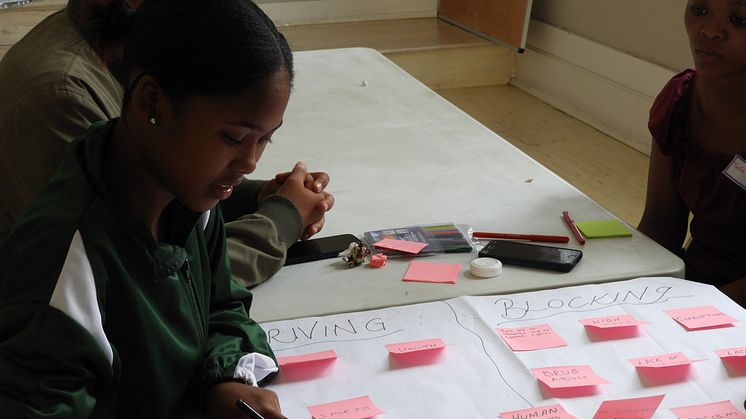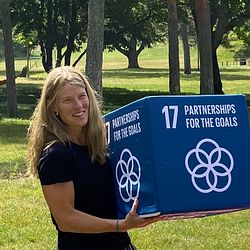
Blogginlägg -
Having the freedom to having fredoom - a field study about youth participation and accessibility in South Africa
María Camila Gómez Fonseca received an ICLD fieldwork grant in 2018 and did her fieldwork in South Africa. She recently graduated with a master’s in Development Studies from Lund University. Her thesis: "Having the freedom to having freedom” – Youth Participatory Assessment of Accessibility in Port Elizabeth, South Africa, aimed to unravel and describe the obstacles and possibilities that young people from vulnerable areas of the municipality experience in accessing the city, considering different dimensions of accessibility. Here she shares her reflections on her experience and the findings of her research.
Accessible cities
"One of the most pressing world issues is demographic urban growth. According the United Nation’s data, 68% of the world´s population will live in cities by 2030. This demographic scene places high pressure on local, national, and regional governments to create urban development plans that propose efficient solutions to climate change, security, pollution, services, life quality and productivity.
A strategy to achieve this is to promote accessibility to cities. This entails making urban spaces easier to use, enjoy, and profit for every inhabitant, usually focusing on technical aspects about mobility and optimization of time/cost for public transport users. However, my thesis explores subjective definitions of access to the city, recognizing that urban experiences are not homogeneous and depend on social and economic factors, particularly in a racially segregated society such as South Africa.
Accessible cities according to young people
I inquired about the experiences of young people from vulnerable areas of Port Elizabeth (South Africa) to access the city and explored their ideas about what accessibility means. During six weeks of field work, I conducted interviews, participatory workshops and participant observation with young people between 15 and 34 years old to collect information about their perceptions and experiences, emphasizing the elements they consider necessary to live a meaningful life and how access to the city facilitates or hinders achieving that ideal.
The main findings of my research refer to the importance of interaction as the ultimate goal of access to the city and the relevance of citizen's agency, especially in terms of choices.
The research showed that accessibility defined by young people has two parts:
A material component (the physical means necessary to move from one place to another) related to safety, affordability, and convenience of public transport;
A perceived component corresponding to the circumstances that each individual considers necessary to have access to the city (security, availability of activities and places of interest, and better access to information about the city).
I propose to understand accessibility from the concepts of capabilities and right to the city, to encourage actions that increase access to the city, particularly from participation and creative construction.

Port Elizabeth, South Africa
I am very grateful and inspired by this wonderful experience in Port Elizabeth and with the ICLD project. Not only did it allow me to meet people and inquire about how young people from another country live, but it also allowed me to question how things could improve for young people in my own country. It also allowed me to discuss democratic participation outside the framework of traditional actions, and the importance of encouraging them in new generations."
María Camila Gómez Fonseca
______
Photos courtesy María Camila Gómez Fonseca
The views and opinions expressed in this article are those of the author and do not necessarily reflect the official policy or position of ICLD.
